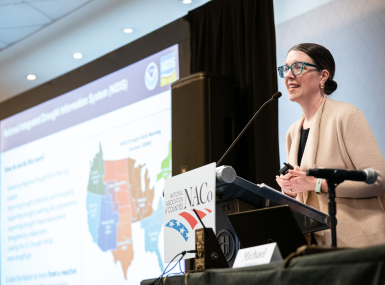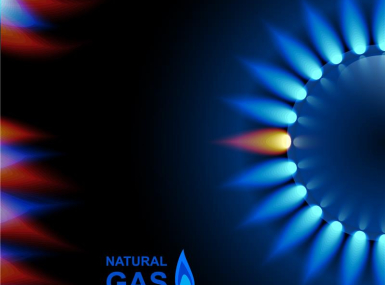NOAA announces $2.6 billion to strengthen resiliency of coastal communities
Author
Upcoming Events
Related News

Key Takeaways
On June 6, the National Oceanic and Atmospheric Administration (NOAA) announced $2.6 billion in available funds through the Climate-Ready Coasts and Communities program. Funded through the Inflation Reduction Act (IRA), which provided NOAA with a total of $3.3 billion, the program aims to bolster coastal resilience while also promoting economic and workforce development. Counties are directly eligible to apply for funding under the program.
The Climate-Ready Coasts and Communities program is made up of five separate initiatives. Details on the initiatives most relevant to counties are available below:
Climate Resilience Regional Challenge
The Climate Resilience Regional Challenge is a $575 million competitive grant program that will award funds to coastal communities, including counties, to increase their resiliency to extreme weather. The Challenge is split into two competition tracks:
- Track One: Regional Collaborative Building and Strategy Development
- Track Two: Implementation of Resilience Adaptation Actions
While eligible projects vary between the two tracks, the primary focus of the Climate Resilience Regional Challenge is to reduce the risks associated with climate change, build capacity at the local level to address the impacts of extreme weather and promote equity and inclusion.
NOAA anticipates awarding 20 to 25 grants ranging from $500,000 to $2 million under Track One and 15 million to $75 million under Track Two. There is no match requirement for either of the tracks.
Counties are directly eligible to apply for funding under both tracks and letters of intent are due August 21, 2023 and full applications are due February 13, 2024.
Climate Ready Workforce
Under the Climate Ready Workforce initiative, NOAA will award $60 million in competitive grants and technical assistance to coastal communities, including counties, to establish workforce development programs focused on climate resiliency.
NOAA anticipates awarding 10 to 20 grants ranging from $500,000 to $10 million. No local match is required.
Counties are directly eligible to apply for this funding, and letters of intent are due November 30, 2023, and the full application is due February 13, 2024.
NOAA will be hosting a series of webinars on the Climate Ready Workforce Initiative:
- Informational webinar #1 - July 11 at 3 PM EST
- Definition of “resilience” webinar - July 12 at 3 PM EST
- Informational webinar #2 -Q&A focus- July 20 at 3 PM EST
- How to leverage partnerships webinar - July 21 at 3 PM EST
- Tips for first-time applicants webinar - August 2 at 3 PM EST
NACo supports federal efforts to help strengthen the resiliency of coastal counties and welcomes the announcement of funds under the Climate-Ready Coasts and Communities program. This blog will be updated as additional details on funding opportunities are released.
Attachments
Related News

NOAA outlines help for counties navigating drought’s growing risks
In April, the National Integrated Drought Information System will launch the Mid-Atlantic Drought Early Warning System, which will help county officials allocate resources and attention to mitigate drought-related disasters.

House Agriculture Committee introduces 2026 Farm Bill
On February 13, House Agriculture Committee Chairman G.T. Thompson (R-Pa.-15) introduced the House version of the 2026 Farm Bill, the Farm, Food, and National Security Act of 2026.

